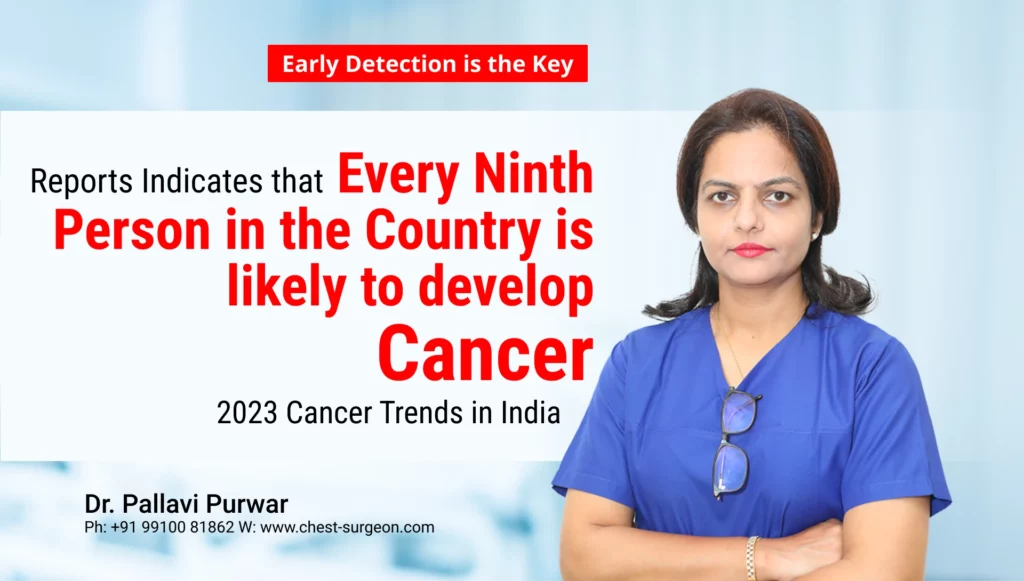Overview of Cancer Trends in India 2023
Cancer remains one of the most pressing health concerns globally, with an estimated 9.6 to 10 million deaths attributed to the disease in 2023. This equates to approximately 26,300 deaths daily, highlighting the critical need for awareness and action. Cancer Trends in India 2023 shows that India, with its vast population and diverse demographics, reflects a complex pattern of cancer incidence across its 28 states and 8 union territories.
In this article, we delve into the latest cancer statistics and Cancer Trends in India 2023, exploring the states with the highest cancer rates and discussing the crucial steps needed for prevention and early detection.

Rising Cancer Cases in India
The incidence of cancer in India has seen a significant rise over the past few decades. Moreover, reports indicate that every ninth person in the country is likely to develop cancer during their lifetime. The annual number of cancer cases doubled from 1990 to 2013, with an estimated 1.39 million cases in 2020, increasing to 1.46 million in 2022. Projections suggest a 12.8% increase by 2025, potentially reaching 1.57 million cases annually.
Cancer-related deaths mirror these trends, with many survivors experiencing a disability-adjusted life, underscoring the importance of awareness and early diagnosis.
States with the Highest Cancer Incidence in India
Based on Crude Cancer Incidence Rates
Crude cancer incidence rates directly reflect the number of cancer cases per 100,000 people in a region. Specifically, the following states reported the highest crude cancer incidence rates in recent years:
- Kerala: 135.3 per 100,000
- Mizoram: 121.7 per 100,000
- Haryana: 103.4 per 100,000
- Delhi: 102.9 per 100,000
- Karnataka: 101.6 per 100,000
- Goa: 97.0 per 100,000
- Himachal Pradesh: 91.6 per 100,000
- Uttarakhand: 91.0 per 100,000
- Assam: 90.2 per 100,000
- Punjab: 85.5 per 100,000
Based on Age-Standardized Incidence Rates
Age-standardized rates adjust for differences in population age structures, offering a more uniform comparison of cancer incidence across regions. The top states by age-standardized incidence rates are:
- Mizoram
- Meghalaya
- Arunachal Pradesh
- Assam
- Delhi
- Haryana
Cancer Trends in 2023: State-wise Insights
Although comprehensive 2023 data is still emerging, preliminary reports indicate the following states have the highest estimated new cancer cases:
- Uttar Pradesh: ~210,000 new cases
- Maharashtra: ~121,000 new cases
- West Bengal: ~113,000 new cases
- Bihar: ~100,000 new cases
- Tamil Nadu: ~82,000 new cases
Common Cancer Types in India (2023)
Cancer Trends in India 2023 shows that the most prevalent cancer types in India for 2023 include:
- Lung Cancer
- Colorectal Cancer
- Breast Cancer
- Pancreatic Cancer
- Stomach Cancer
The Importance of Awareness and Early Detection
Cancer awareness and early detection are crucial in reducing the disease’s impact. Many cancer fatalities in India stem from late diagnoses and a lack of awareness about the disease’s risk factors. Public health initiatives should focus on:
- Promoting regular health checkups
- Educating about lifestyle changes that can reduce cancer risk
- Encouraging early medical consultations for symptoms
Conclusion
Cancer continues to be a significant health challenge in India. By understanding regional trends and emphasizing prevention and early detection, we can improve outcomes and reduce the cancer burden in India. A collective effort towards awareness and proactive health management is essential for a healthier future.